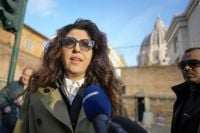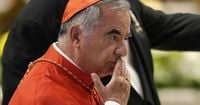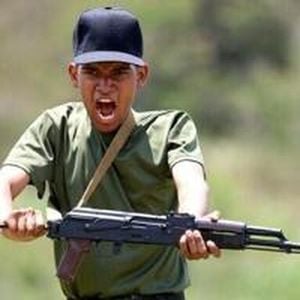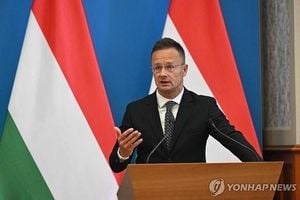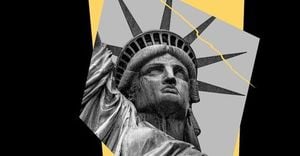The Vatican’s so-called “trial of the century” has taken another dramatic turn, as defense lawyers called for the recusal of chief prosecutor Alessandro Diddi from the appeals process, citing a trove of private WhatsApp messages and audio recordings that have thrown the legitimacy of the entire investigation into question. The move, which unfolded on September 22, 2025, in the frescoed courtroom of the Apostolic Palace, has cast new shadows over the Holy See’s largest and most ambitious financial crime prosecution to date—a case that has already seen the conviction of nine high-profile figures, including Cardinal Angelo Becciu, once a trusted adviser to Pope Francis and even considered a future papal contender.
At the heart of the controversy is the Vatican’s 350 million euro ($412 million) investment in a London property, a deal that spiraled into scandal and led to a sprawling investigation, public firings, and the 2023 convictions. Becciu, who was sentenced to five and a half years for embezzlement, has always maintained his innocence. But the real shock came in August 2020, when Monsignor Alberto Perlasca—the investigation’s initial prime suspect—dramatically changed his story and turned prosecution witness, a move that allowed him to escape indictment and, in a twist, become listed as an injured party in the trial. Later, he even took up a role as a prosecutor in another Vatican court.
According to the Associated Press, the defense’s latest challenge hinges on thousands of pages of WhatsApp messages and audio files that have recently surfaced. These documents, which span several years, suggest a pattern of questionable conduct not only by Vatican police but also by Diddi and—perhaps most surprisingly—by Pope Francis himself. The texts and recordings appear to detail behind-the-scenes efforts by two women, Francesca Chaouqui and Genevieve Ciferri, to persuade Perlasca to implicate Becciu. The defense argues that these actions, if verified, amount to improper tampering with evidence and witness testimony.
The defense’s motions, filed separately but with a unified aim, argue that Diddi now has a personal interest in the outcome of the appeals trial—a conflict that, they say, should disqualify him from prosecuting the case. “We do not yet know whether what emerges from the chats and audio recordings is true, but it is certain that they seem to reveal—except for possible boasts, which must be verified—a disturbing direct or indirect involvement of the investigators,” wrote the lawyers for the main defendants, according to AP reporting. They further alleged that the investigation was “contaminated from the start and the defendants couldn’t get a fair trial in the Vatican, an absolute monarchy where Francis intervened on behalf of prosecutors.”
The existence of the private messages first rocked the trial in 2022, when Diddi informed the court that Ciferri had forwarded him 126 chats she’d exchanged with Chaouqui. Diddi submitted these as evidence but redacted all but eight, a move that immediately drew complaints from the defense, who accused him of withholding crucial information. Since then, even more messages have come to light—far more than the original 126—showing that Ciferri continued to send Diddi content for four days. Diddi claimed he blocked her after the first night, but the volume of correspondence now circulating suggests otherwise.
Adding to the intrigue, the chats and an audio file cited by the defense point to Vatican Police Commissioner Stefano De Santis allegedly giving Chaouqui advice for Perlasca on how to implicate others while he was still a suspect. This, the defense claims, is yet another sign of improper coordination behind closed doors. The implication is that Perlasca’s testimony—crucial in convicting Becciu and others—may have been shaped or influenced by outside actors with their own agendas.
During Monday’s hearing, tribunal president Archbishop Alejandro Arellano Cedillo accepted the defense motions and ordered Diddi to respond within three days. In a brief statement before departing the courtroom, Diddi thanked the defense for the opportunity to reply to the allegations, saying he would “express my thoughts calmly, in order to dispel the doubts that have arisen in recent months about the conduct of the investigation.” Other prosecutors took over in his absence, and the proceedings paused, awaiting Diddi’s formal response.
Should Diddi refuse to recuse himself, the matter will escalate to the Vatican’s high Court of Cassation, which is led by American Cardinal Kevin Farrell, a close ally and appointee of Pope Francis. Farrell, in his role as camerlengo, reportedly produced a letter from Francis following the pope’s death that made clear Becciu was not to participate in the conclave to elect a successor—an extraordinary measure that underscores just how politically charged the case has become within the Vatican’s inner circles.
Meanwhile, Francesca Chaouqui, one of the two women at the center of the WhatsApp saga, is now under investigation by both Italian and Vatican authorities for alleged influence-peddling related to her role in persuading Perlasca to change his testimony. The investigation, according to the defense, considers Diddi himself a victim of the scheme. This, they argue, only strengthens the case that Diddi’s personal stake in the matter is too great for him to serve as a neutral party in the appeals process.
The Vatican, for its part, has remained largely silent on the substance of the allegations, though the tribunal’s willingness to entertain the defense’s motions suggests that even at the highest levels, there is concern about the appearance—and perhaps the reality—of impropriety. The Holy See’s justice system, unlike most national courts, operates under the direct authority of the pope, with little in the way of external oversight or independent review. This unique structure has long fueled criticism from legal experts and human rights advocates, who argue that defendants in Vatican trials face an uphill battle in securing due process and impartiality.
For many observers, the latest revelations only deepen the sense of intrigue and uncertainty swirling around the Vatican’s financial affairs. The London property deal at the center of the case was supposed to be a lucrative investment for the Holy See, but it instead became a symbol of mismanagement, secrecy, and, ultimately, scandal. Pope Francis, who has made financial transparency a cornerstone of his papacy, now finds himself and his closest aides under renewed scrutiny as the appeals trial threatens to unravel the very reforms he has championed.
As the Vatican waits for Diddi’s response and the next phase of the trial, the outcome could have far-reaching implications—not just for the individuals involved, but for the credibility of the Holy See’s legal system and the legacy of Pope Francis’s efforts to clean up Vatican finances. For now, the only certainty is that the “trial of the century” is far from over, and the world is watching to see how the Vatican will navigate its latest crisis of confidence.
